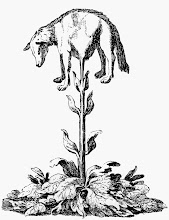
In order to build on the site, the city must issue a bylaw rezoning UNB endowment conservation land to make it endowment development land. It must then be rezoned a second time to allow box store development.
The Daily Gleaner wrote that "the purpose of debuting the bylaw at a formal council meeting is to advise the public that it's now available at the city clerk's office at city hall for examination and written objections may be submitted within the next 30 days."
To voice your opposition to UNB Woodlot development write to the
Office of the City Clerk
City Hall
397 Queen Street
Fredericton, NB E3B 4Y7
Phone: (506) 460-2127
Or email by following this link.
--
Corbett Brook. [here] magazine.
On the paths around Corbett brook one can see the marsh hills through dry poplar branches and discern in the water the long reflection of the trees. Short hills lay low in the water, turning yellowed grasses to the wind, a pair of ducks bathing and calling in between. Leaves in puddle bottoms have assumed the tones of the wet clay path, broken cattails waver under a sudden drizzle. A mist loosens all definition. The grey shapes of the tree line are interrupted by an orange growth on a long dead birch, alike in colour to the department store signs that peer garishly upon the wetland.
Corbett brook, at the point nearest to the department store, reaches about the length of a soccer pitch. Both the store and brook stand on the
The separation is a delicate one. A stone’s throw from Corbett brook is a catch pool, ringed with a wire fence, that divides the wetland from the parking lot. A paved lot is not environmentally innocuous; the parked cars it hosts leave patches of motor oil that are washed out with the rain.
“And it’s right up against the buffer,” said Geoff Harding, Development Manager of the local Ducks Unlimited branch. He was surprised by the proximity when he saw Corbett brook on a recent errand.
“There isn’t much space left between the parking lot and the brook. I know that the store and the university went through the processes to get the zoning permits. But in a situation like this there is going to be run-off from the parking lot, and it might not be easy to control the consequences.”
Corbett brook, once a fairly isolated waterway, is an essential part of an ecosystem, feeding forest growth and wildlife. 15 years ago, before the development began, Ducks Unlimited built a water control structure leading into the marsh, stabilizing and enabling changes to the amount of water it contained. The goal was to create a permanent wetland.
Harding said that with run-off the risk of pollution is paired with the potential impact of sedimentation, the distribution of earth and organic matter throughout waterways. If one tosses a stone into the catch-pool, the water that courses up in reply is a pale brown.
“With a paved lot you get a lot of quick runoff, with oil and stuff like that. It hits the buffer before it reaches the brook, but can eventually spill over,” he said.
“Sedimentation happens everywhere, because of forestry and agriculture and the disappearance of trees. When enough of this takes place you have the disappearance of wetlands, and the loss of natural habitats.”
Harding said that Wetlands are critical to wildlife survival and to the overall health of the watershed. Marshes like Corbett brook filter contaminants from our water systems that can detrimentally impact water quality over time. Sedimentation and pollution from run-off could eventually reduce the brook’s cleansing properties. Although
“This is somewhat typical of how wetland loss happens,” said Harding.
“Not in big huge losses, by being drained, but in small pieces, one at a time. They get chipped away.”


.jpg)




